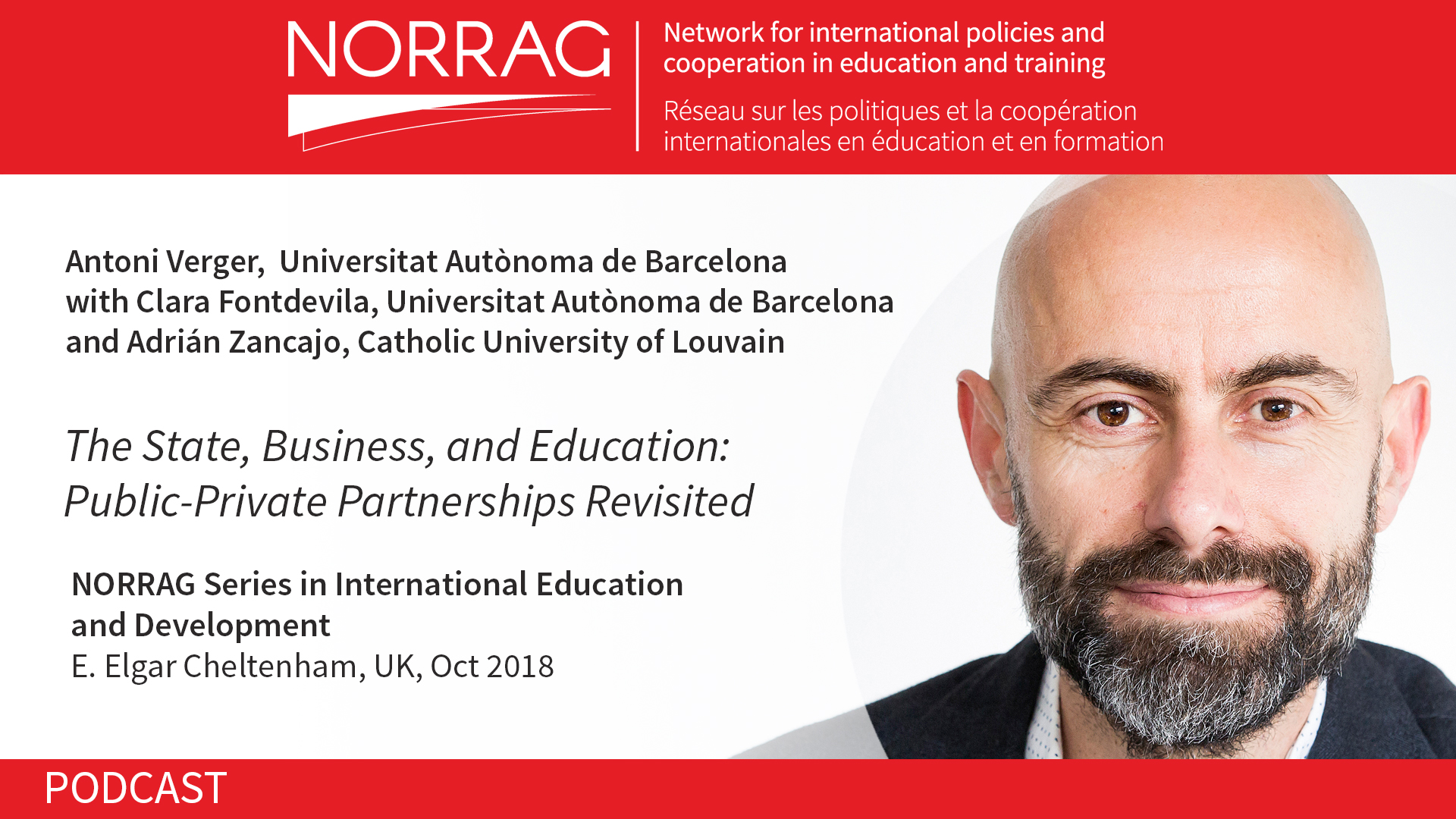Watch Antoni Verger’s video on his chapter ‘’Experimenting with educational development: International actors and the promotion of private schooling in vulnerable contexts’’, co-authored with Adrián Zancajo and Clara Fontdevila.
In his chapter ‘’Experimenting with educational development: International actors and the promotion of private schooling in vulnerable contexts’’, co-authored with Adrián Zancajo and Clara Fontdevila, Antoni Verger describes the role and impact of international organizations in the promotion of private education. This chapter is part of NORRAG open-access book “The State, Business, and Education: Public-Private Partnerships Revisited”, edited by Alexandra Draxler, Senior Advisor at NORRAG and Gita Steiner-Khamsi, NORRAG Director and Professor at Teachers College, Columbia University and the Graduate Institute
According to Verger, international actors go through two main paths when promoting privatization of education. The first path is the expansion of low-fee private schools that target poor families. These schools are usually built by local entrepreneurs. This trend is common in countries such as Malawi, Nigeria and Pakistan. Previously, this path was done spontaneously. However, according to Verger, there has been a recent international support for this approach, especially from the World Bank, for example. This strategy has been closely linked to the main theme of educational development.
The second path is the promotion of market reforms in contexts of emergencies, whether natural disasters or political conflicts. The rationale behind this approach is supporting countries that urgently need help. This strategy opens opportunities for international actors, such as international organizations and philanthropic foundations, to promote their preferred policy solutions. These policy solutions usually include market reforms. An example of this would be in Haiti after the earthquake.
Verger also discussed how there are ideological, humanitarian, economic and pragmatic reasons behind this international push for private solution education that international actors are now referring to it as the most effective solution to address the struggles many countries face in the education domain.
How to read The State, Business, and Education: Public-private Partnerships Revisited:
Available online in Open Access at E. Elgar Online
Order a paperback or eBook copy at E.Elgar shop (production costs apply)
Related content:

